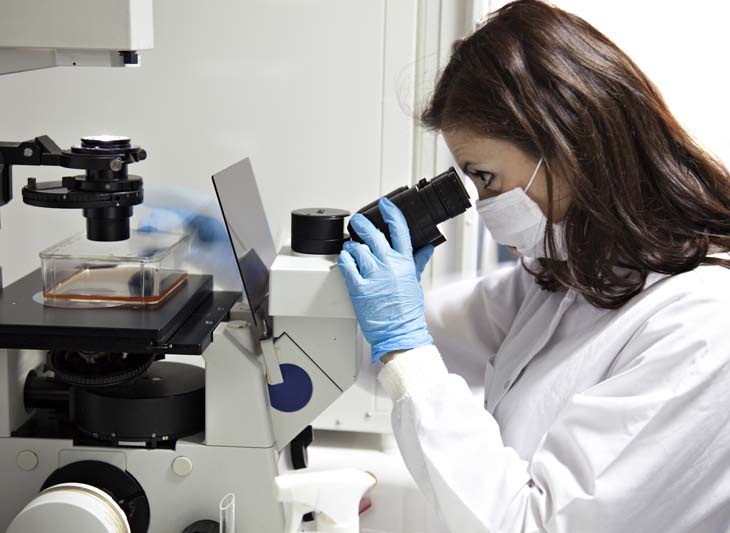Health Industry Ethics, SMEs Boosted with Code Increase

Health industry groups are on track to double the number of ethics codes among them in APEC member economies, an ambitious multi-year target advanced by public-private collaboration to clamp down on unethical practices that jeopardize patient safety and the capacity of small businesses to drive growth within the sector.
Thirty-two biopharmaceutical and medical device associations spanning ten APEC economies announced in Manila that they have adopted or achieved formal progress towards their first code of ethics, expanding the number of firms in these sectors covered by a code to 19,000 across the region. Over 13,000 of them are small and medium enterprises or SMEs.
With the increase, it is projected that by the end of 2015 the total number of ethics codes in APEC economies will have doubled over the last three years—a goal set by APEC officials, in coordination with the private sector and civil society. The codes are based on APEC Principles formulated in a multi-stakeholder process and centered on business independence, integrity and transparency. Cooperative technical training under APEC has boosted code adoption.
“Corruption increases costs and safety risks for patients and erodes public trust in health systems,” noted Undersecretary Kenneth Hartigan-Go of the Philippine Department of Health, in remarks here at a just concluded two-day APEC small business ethics forum – convening APEC officials, industry representatives, healthcare professionals and patients’ organizations.
“The lack of an ethical business environment hurts companies seeking to legitimately grow their local operations or engage in cross-border trade,” added Zenaida Cuison-Maglaya, Philippine Undersecretary of Trade and Industry. “Corruption is especially problematic for small firms which drive production and supply chains in sectors like healthcare. Above all, it diverts their limited resources away from investment in innovation.”
SMEs account for more than 97 per cent of all businesses, over half of employment and 60 per cent of GDP in APEC economies but are more vulnerable to corruption given their size. Potential conflicts of interest between healthcare companies and physicians are a particular concern. Examples include firms that may extend gifts or other inappropriate inducements to industry professionals to promote a specific type of drug or medical equipment.
“We expect the adoption of business codes of ethics in the healthcare sector will rise as multi-stakeholder collaboration in the region intensifies,” said John Andersen, Chair of the APEC Small and Medium Enterprise Working Group, which oversees cooperation between APEC members on small business development. “The gains achieved thus far are substantial but there is still a long road ahead,” added Andersen, who is also United States Deputy Assistant Secretary of Commerce.
A new guide to implementing ethical collaboration in the biopharmaceutical and medical device sectors was rounded out at the forum by officials and senior principals from more than 150 industry, professional and patient organizations in APEC economies.
“The guide is designed to facilitate open channels of engagement, code of ethics development and alignment, training measures and early problem and opportunity identification across these different stakeholders,” explained Russell Williams, President of Canada's Research-Based Pharmaceutical Companies or RX&D and Industry Co-Chair of the APEC Biopharmaceutical Working Group on Ethics.
“APEC continues to lead the way in the advancement of business ethics in healthcare by promoting trust and communication, and delivering practical tools to help all players get things right,” added KP Tsang, Chair of the International Alliance of Patients’ Organization. “The key now is to work together to translate codes into ethical behavior at a grassroots level.”
“The entire health ecosystem benefits when high standard codes of ethics are implemented,” concluded Nancy Travis, Vice President for International Governance and Compliance at the Advanced Medical Technology Association.
Small and Medium Enterprise Ministers from APEC economies will review progress and decide the next step when they meet in Iloilo, the Philippines on 25 September.
# # #
For more on work in APEC to enhance business ethics in the healthcare industry, click here.
Additional information on APEC initiatives to promote business ethics can be found at here.
For further details, or to arrange possible media interviews, please contact:
David Hendrickson +65 9137 3886 at [email protected]
Michael Chapnick +65 9647 4847 at [email protected]
More on APEC meetings, events, projects and publications can be found on www.apec.org. You can also follow APEC on Twitter and join us on Facebook and LinkedIn.

